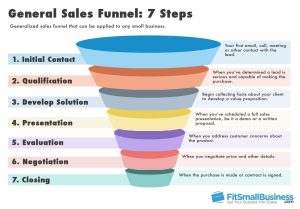
Strategies for creating an eco-friendly and sustainable business
In today’s rapidly-changing world, it has become increasingly important for businesses to prioritize sustainability and mitigate their environmental impact. Creating an eco-friendly business not only benefits the planet but also enhances your brand reputation, attracts environmentally conscious customers, and can even lead to long-term cost savings. In this article, we will explore key strategies that can help you build an eco-friendly and sustainable business.
1. Embrace renewable energy sources
One of the most effective ways to reduce your business’s carbon footprint is by transitioning to renewable energy sources. Investing in solar panels, wind turbines, or even purchasing renewable energy credits can significantly reduce your dependence on fossil fuels. Not only will this help the environment, but it also protects your business from energy price fluctuations in the long run.
2. Adopt sustainable packaging practices
As consumers become more conscious of the environmental impact of their purchases, businesses must prioritize sustainable packaging solutions. Switching to biodegradable or compostable packaging materials, reducing excess packaging, and using recycled materials can significantly reduce waste and promote a more eco-friendly image for your brand.
3. Encourage remote work and virtual meetings
The COVID-19 pandemic has demonstrated the viability and benefits of remote work and virtual meetings. Embracing these practices not only increases flexibility for your employees but also greatly reduces your business’s carbon emissions associated with commuting and business travel. Use online collaboration tools and video conferencing platforms to minimize physical meetings and promote a more sustainable way of working.
4. Implement energy-efficient practices and technologies
Reducing energy consumption is an essential pillar of any eco-friendly business strategy. Implementing energy-efficient practices within your workspace, such as using LED lighting, installing smart thermostats, and optimizing HVAC systems, can lead to significant energy savings. Conducting regular energy audits and investing in energy-efficient technologies will help you identify areas for improvement and enhance overall sustainability.
5. Prioritize supply chain transparency and ethical sourcing
Ethical sourcing and supply chain transparency are crucial for creating a sustainable business. Engage with suppliers who share your commitment to sustainability, fair labor practices, and ethical sourcing of materials. By ensuring transparency throughout your supply chain, you can minimize environmental and social risks, build trust with consumers, and contribute to a healthier planet.
6. Promote recycling and waste reduction
Establishing comprehensive recycling programs within your organization and encouraging waste reduction practices can significantly reduce your business’s environmental footprint. Provide recycling bins throughout your workspace, educate employees about the importance of proper waste separation, and explore partnerships with recycling agencies. Additionally, consider refurbishing or repairing equipment whenever possible instead of buying new, further reducing waste generation.
7. Educate employees and customers about sustainability
Raising awareness and educating both employees and customers is crucial in promoting eco-friendly practices. Conduct training sessions to educate employees about sustainability goals, energy-saving methods, and the importance of individual contributions. Engage customers by showcasing your sustainable initiatives, providing tips for eco-friendly living, and encouraging them to join your mission to build a more sustainable future.
In conclusion, creating an eco-friendly and sustainable business requires a holistic approach that encompasses various strategies. By embracing renewable energy, adopting sustainable packaging practices, promoting remote work, implementing energy-efficient technologies, prioritizing ethical sourcing, promoting recycling and waste reduction, and educating stakeholders, you can make a significant positive impact on the environment while building a strong and reputable brand. Remember, sustainability is an ongoing journey, and continuously reassessing and evolving your practices is key to long-term success in the tech industry.

